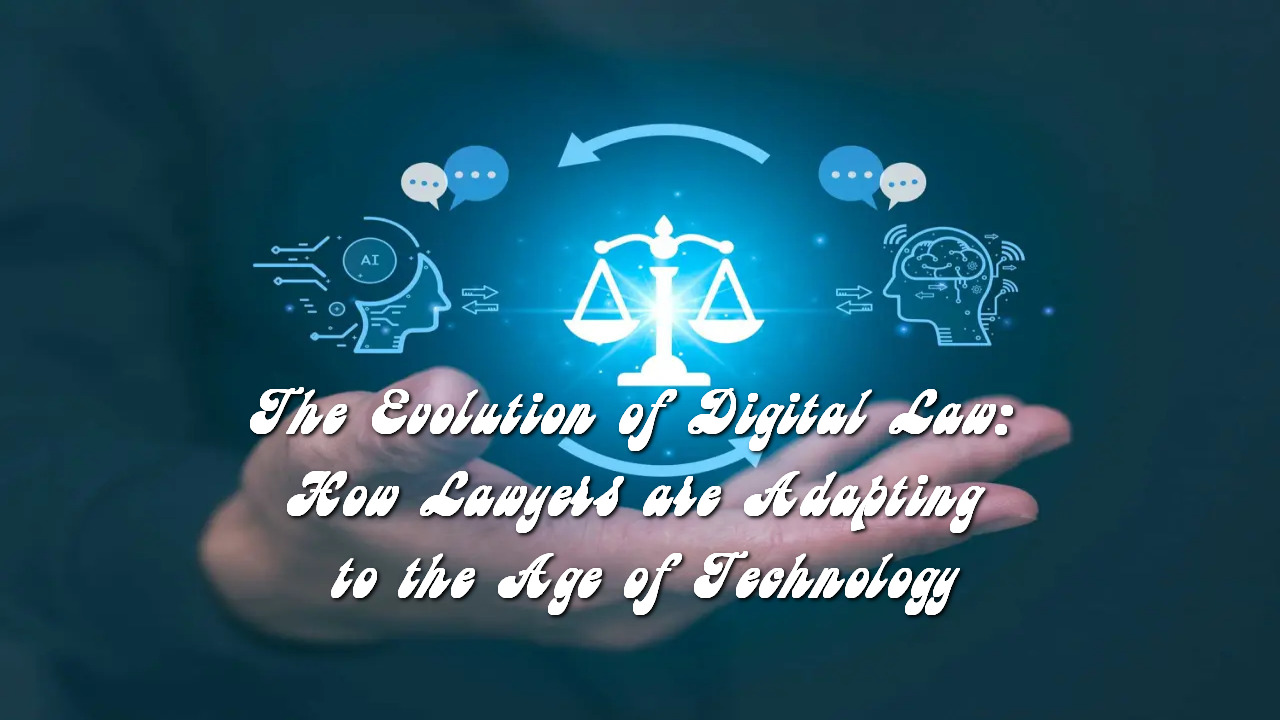Digitalization of Legal Processes

The digitalization of legal processes stands as one of the most prominent aspects of the evolution of digital law. As modern communication and record-keeping methods have shifted from paper-based systems to digital platforms, lawyers have had to adapt to electronic discovery, online case management, and virtual court proceedings. Document management systems and electronic filing have streamlined the handling of vast volumes of information, enabling legal professionals to work more efficiently and provide clients with quicker and more accurate results. However, this shift has also brought about challenges related to data security, privacy, and the admissibility of digital evidence, prompting legal experts to navigate the complexities of ensuring the integrity of digital documents in a legally binding context. If you face data security challenges, find a lawyer in Fort Lee, NJ! It’s worth it!
Cybersecurity and Data Privacy
The proliferation of technology has brought to the forefront the intricate web of cybersecurity and data privacy concerns. Lawyers are now faced with the task of understanding complex data protection regulations and crafting policies that safeguard sensitive information in an increasingly digitalized world. The General Data Protection Regulation (GDPR) in Europe and similar legislations in other regions have redefined the way companies handle personal data, leading legal practitioners to provide guidance on compliance and risk management. Furthermore, the surge in cybercrimes and breaches has necessitated the development of expertise in the legal aspects of digital forensics and incident response, as lawyers collaborate with IT professionals to mitigate potential legal fallout from data breaches.
Intellectual Property in the Digital Age

The digital revolution has dramatically reshaped the landscape of intellectual property (IP) law. Lawyers are now tasked with addressing intricate issues surrounding copyright, trademarks, and patents in the context of the internet and digital media. The ease of copying and distributing digital content has heightened concerns about online piracy and copyright infringement, prompting legal experts to devise innovative strategies to protect creators’ rights. Additionally, emerging technologies such as artificial intelligence and 3D printing have introduced new complexities to patent law, raising questions about ownership and liability in an increasingly interconnected world.
E-Commerce and Digital Transactions
The rise of e-commerce platforms and digital transactions has led to a surge in legal matters related to online contracts, payment disputes, and consumer protection. Lawyers have had to adapt to the unique challenges posed by cross-border transactions, differing regulations in various jurisdictions, and the enforcement of digital agreements. The emergence of cryptocurrencies and blockchain technology has further broadened the scope of legal considerations as experts grapple with issues like regulatory compliance, initial coin offerings (ICOs), and smart contracts. Navigating these complexities requires legal professionals to stay informed about evolving technological trends and their implications on commercial interactions.
In conclusion, the evolution of digital law represents a profound shift in the legal landscape, one driven by the inexorable march of technology. Lawyers and legal professionals find themselves at the crossroads of tradition and innovation, grappling with a new set of challenges and opportunities brought about by the digital age. From digitalizing legal processes and managing cybersecurity concerns to navigating the intricacies of intellectual property and overseeing e-commerce transactions, legal experts are undergoing a paradigm shift in their roles. Adapting to these changes requires a deep understanding of both the legal intricacies and technological advancements, highlighting the need for interdisciplinary collaboration and continuous education. As society continues to advance technologically, the evolution of digital law will remain a dynamic and ever-evolving field, shaping the way legal professionals serve their clients and ensure justice in an increasingly digital world.
